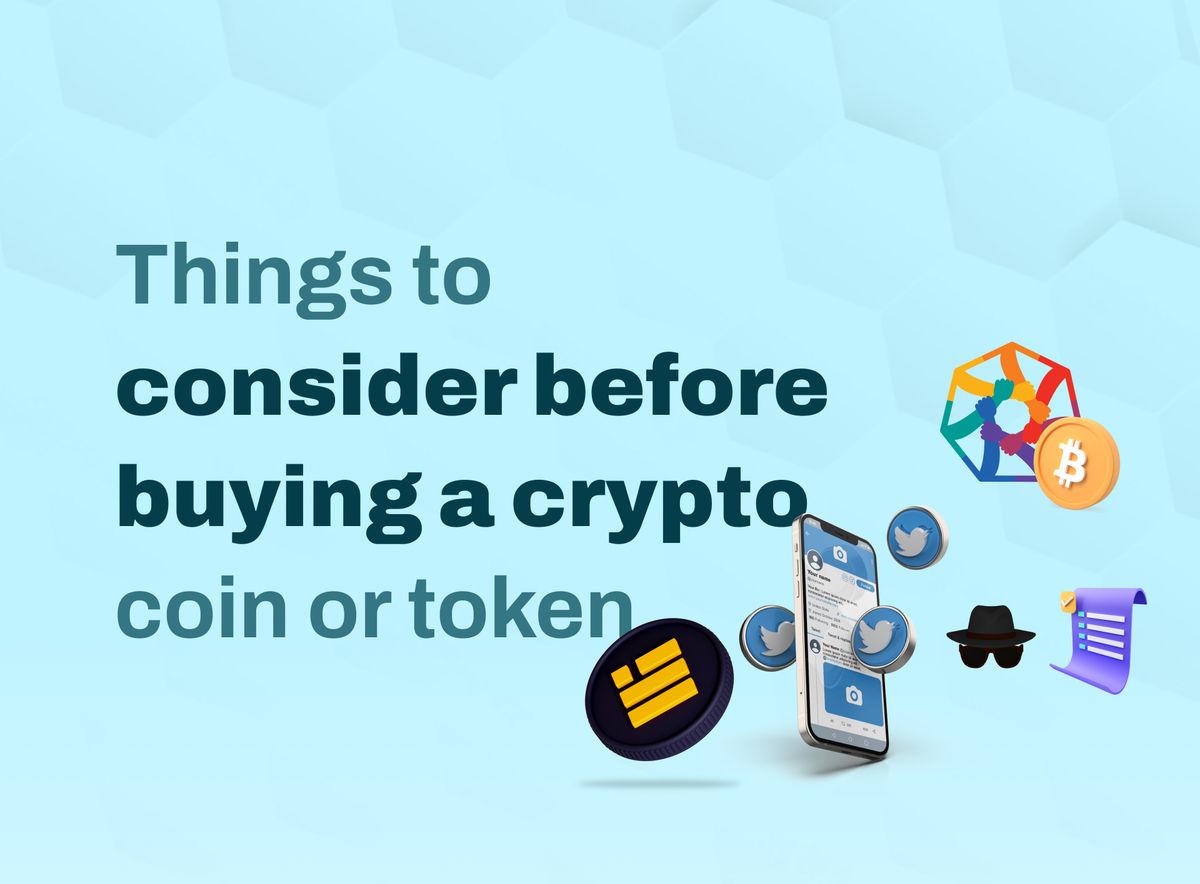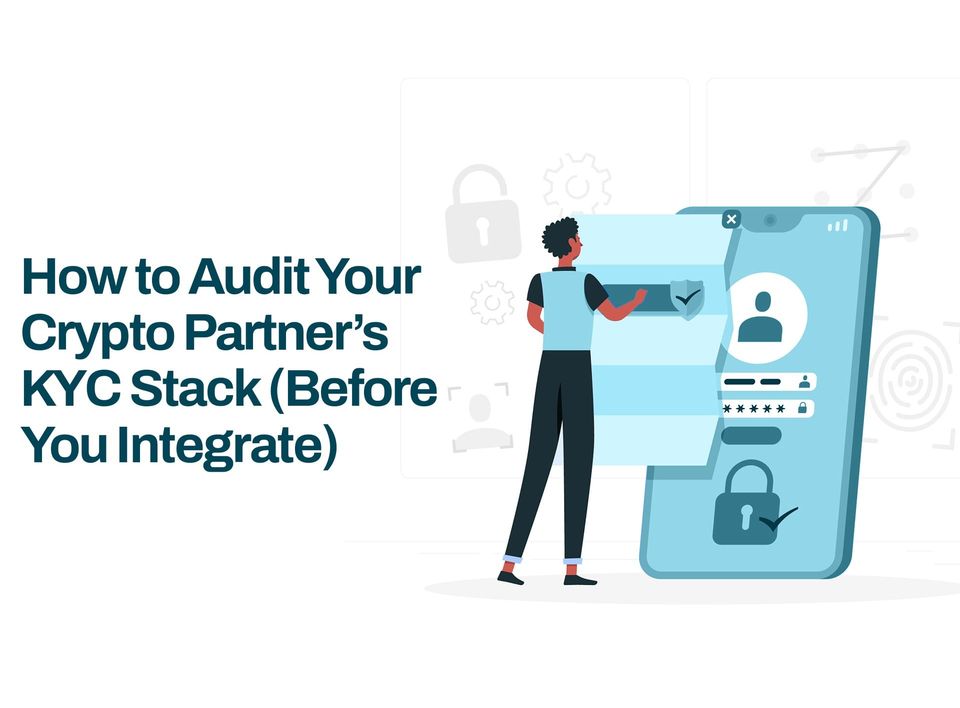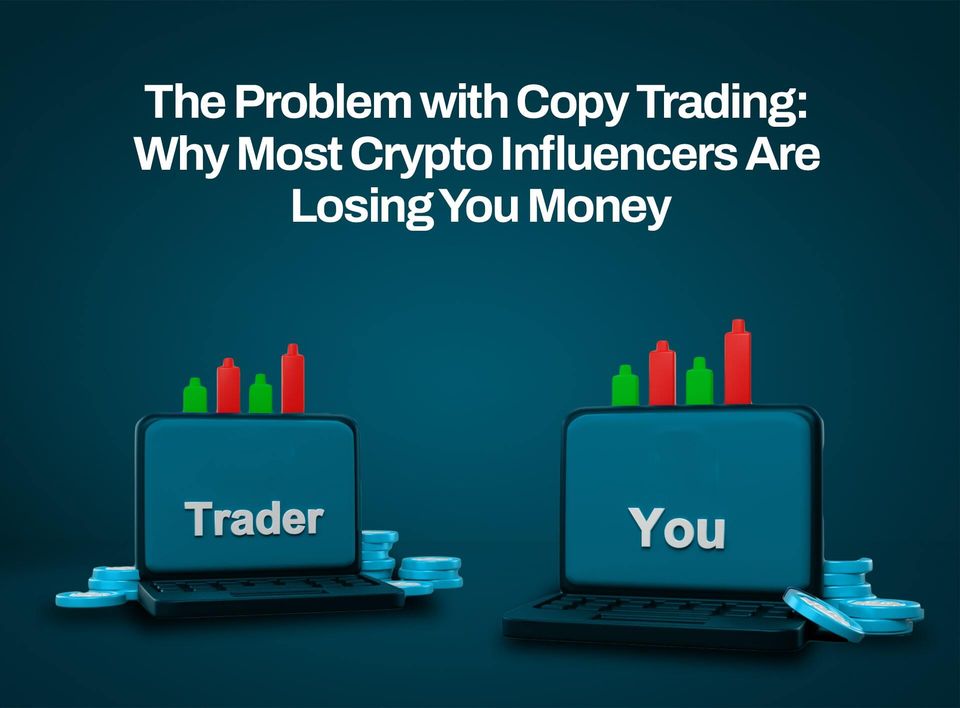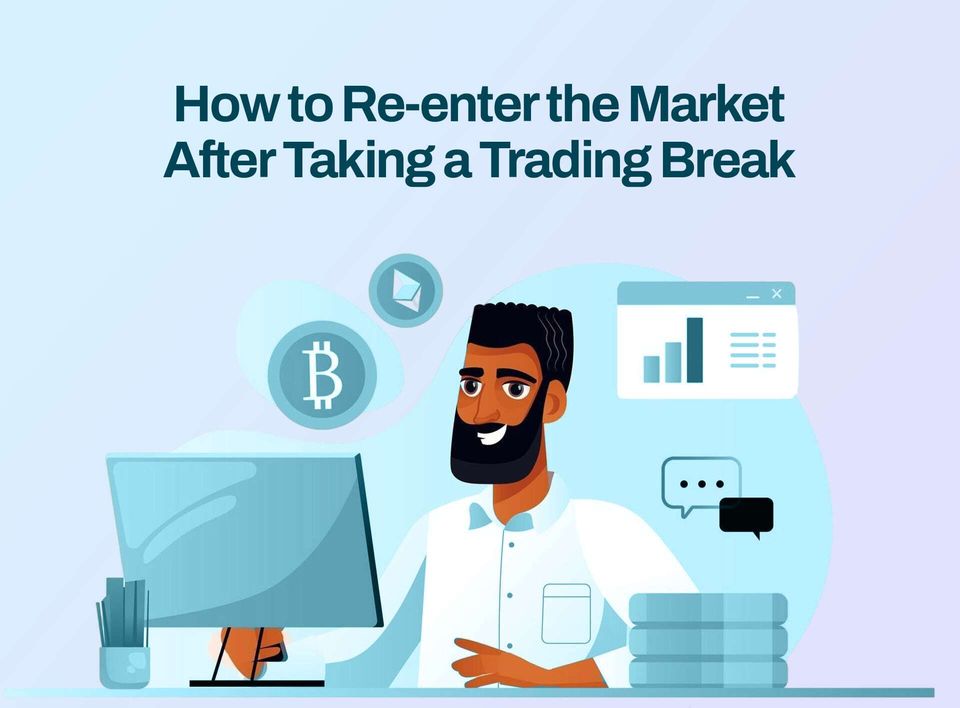Before You Buy That Crypto; Read These 5 Questions To Ask
Ask critical questions about the crypto creators, the coin purpose, the number of coin holders, liquidity and transaction volume.

Question 1: Who are the creators of the token or coin?
Question 2: Does the coin or token have an official website and social media page?
Question 3: What is the purpose of the token/coin?
Question 4: How many holders does the crypto coin/token have?
Question 5: What is the liquidity and transaction volume?
Picture this.
You're scrolling through Twitter/X, and a tweet pops up inviting you to invest in the latest hottest crypto token on the market.
You open the tweet and scroll through the replies, which are full of people praising the token. It looks like a good deal, so you buy the token.
A week later, the token is sitting in your crypto portfolio, useless and worth nothing.
Another scenario. Your friend visits you at home, and they start telling you about a new cryptocurrency that will shoot for the moon. They convince you to buy the new coin.
A month later, the coin stops pumping. The coin creators are nowhere to be found, and their social media pages are suddenly inactive or unavailable.
The value of the coin plummets steadily to zero.
Your friend starts to avoid you.
Now you've lost money and probably a friend.
Cryptocurrency is a reasonably new market, but scam tactics are as old as time.
At every turn, a new crypto token or coin is touted as the greatest thing since sliced bread.
Sometimes, the token or coin is a pump-and-dump scheme waiting to happen.
Other times, the coin may not be a scam, but because its creators have an unclear or non-practical purpose, its value might eventually crash terribly.
To avoid getting roped into an entanglement of regret because you bought "bad crypto", here are five questions to ask before buying cryptocurrency.
5 Questions to Ask Before Buying That Crypto Coin or Token
The following questions are fundamental questions to ask before buying or investing in a cryptocurrency:
1. Who are the creators of the token or coin?
When evaluating a new cryptocurrency, transparency about its founders and development team is crucial.
The individuals behind a project should have a public track record with verifiable information about their professional history and expertise.
If the developers or team members are anonymous or have a questionable online presence, it’s often a red flag that the project may not be legitimate.
Projects backed by identifiable and reputable individuals offer more accountability, meaning that if the project turns out to be fraudulent, these people can be held responsible.
Another key factor to examine is the project’s whitepaper.
A whitepaper outlines a cryptocurrency’s purpose, technology, objectives, and guiding principles. Legitimate projects always provide this document, offering detailed insights into their vision, the problems they aim to solve, and how they plan to achieve their goals.
Reading the whitepaper can give you a much clearer sense of whether the project is a sound investment or a potential risk.
Remember, the more transparency a project provides, the more secure you can feel about your investment.
2. Does the coin or token have an official website and social media page?
A legitimate cryptocurrency project should have a basic yet credible online presence that includes essential elements such as:
- Website: A trustworthy crypto project should have a well-organized website detailing the project’s purpose, vision, and team members. It should also provide easy navigation for potential investors.
- Team Information: Transparent projects make their team’s identities public, often including bios, credentials, and LinkedIn profiles to establish trust. Anonymous teams can be a red flag, as they lack accountability.
- White Paper: A white paper is a key document that explains the project’s goals, technology, and roadmap. It’s the project’s pitch to potential investors, detailing how it intends to solve a real problem or meet a specific need.
- Price Chart and Market Data: Reputable coins usually have their market data displayed in real time. A price chart shows historical performance, helping investors make informed decisions rather than relying solely on hype.
- Purchase Options: There should be a straightforward way to purchase the token. This can include exchange listings or direct links to secure purchase options, which show that the project has established relationships within the crypto ecosystem.
- Customer Support: Accessibility to customer service through email, chat, or social media is essential. Support options reflect the project’s commitment to its user base and willingness to resolve issues.
- Active Social Media Presence: Engagement on platforms like Twitter (X), Reddit, and Discord is crucial, as these channels allow investors to track the project’s updates, ask questions, and interact with the community. A silent or inactive project can indicate abandonment or fraud.
In today’s digital world, the lack of an online footprint raises serious red flags.
Even in the stock market, buying stocks owned by an unknown company would be inadvisable. How much more crypto?
3. What is the purpose of the token/coin?
Hype is a powerful selling tool often used by crypto scammers and pump-and-dump schemes to lure unsuspecting traders and investors.
These schemes often involve coins or tokens introduced to the market with lots of hype but without any clear purpose or practical use.
Scammers capitalise on excitement, social media buzz, and promises of high returns to temporarily inflate the value. They aim to attract as many buyers as possible before selling off their holdings at a profit, leaving others with worthless assets.
To avoid these traps, it’s essential to understand the type of token you’re considering.
Ask yourself: Is it a utility token, which has a specific use within a project or ecosystem? Is it a governance token that gives holders a say in the project’s decision-making? Or is it a security token, representing real assets or revenue?
If you can’t easily answer these questions, it’s wise to hold back from investing.
Hype can be very tempting, but it’s often not worth the risk. If you’re still interested, consider starting with a small investment—say, $5 or $10—so that you limit potential losses.
4. How many holders does the crypto coin/token have?
Generally, a viable project/coin/token should have at least 200 holders—meaning individuals who own the coin in their wallets. This number shows that there is a level of community interest and adoption.
However, it’s equally important to assess how the coin is distributed among these holders. If only a few wallets hold a large percentage of the coin’s total supply, this concentration is a significant red flag.
Such holders, often called “whales,” have the power to manipulate the coin’s price by selling large portions, which can cause a sudden drop in value.
In extreme cases, these large holders might cash out, causing the price to crash and leaving other investors with substantial losses.
For a more secure investment, look for coins with a broad distribution across many holders. This reduces the likelihood of price manipulation and demonstrates a more balanced, community-driven investment base.
5 . What is the liquidity and transaction volume?
For Liquidity:
A coin should ideally have a liquidity pool of at least $30,000. Liquidity refers to how easily the coin can be bought or sold without significantly impacting its price.
Coins with low liquidity are often difficult to trade, meaning that if you decide to sell, you may find few buyers, which can drive down the price and leave you with losses.
In many cases, low liquidity indicates limited interest or backing, suggesting that the coin may not have a secure or stable future.
For Transaction Volume:
A genuine and active cryptocurrency should process at least five transactions on the blockchain per minute.
This level of activity shows that there is consistent buying and selling of the token, which points to real interest and usage.
This transaction volume should ideally increase over time as more people adopt the coin.
Low transaction volume often signals that the coin lacks an active community or user base, making it susceptible to price manipulation or rapid declines in value.
To Recap
- Buying cryptocurrency doesn't have to be rocket science or a blind gamble. There are always red and green flags to spot.
- It can be tempting to risk investing in a new cryptocurrency. However, it will help to always ask the five questions above before buying any coin or token.
- Finally, just because the person recommending the cryptocurrency to you is a friend, family member or celebrity you like does not mean you should buy it.
- Always do due diligence before adding a coin or token to your wallet/portfolio.
Frequently Asked Questions (FAQs)
Q: What should I look for in a cryptocurrency's white paper?
A: A white paper should detail the project's technology, objectives, and principles. It is a comprehensive document that explains the purpose and mechanics of the cryptocurrency. Reading it thoroughly helps make informed investment decisions.
Q: Can a cryptocurrency without a white paper be legitimate?
A: While rare, some legitimate cryptocurrencies might initially launch without a white paper. However, this is usually a red flag. Most reputable projects provide a white paper to explain their technology, objectives, and principles in detail.
Q: How can I determine the purpose of a cryptocurrency token or coin?
A: You should be able to identify if the token is a utility token, a governance token, or a security token. If the purpose is not clear, it's likely a hype-driven project without substantial value, making it a risky investment.
Q: What does the number of holders tell me about a cryptocurrency?
A: A viable new coin should have at least 200 holders. If a few holders have a large percentage of the coins, it indicates potential price manipulation risks. A diverse holder base suggests more stability and legitimacy.
Q: Why are liquidity and transaction volume important when evaluating a cryptocurrency?
A: High liquidity (at least $30,000) and consistent transaction volume (at least five transactions per minute) indicate active trading and market interest. Low liquidity and transaction volume suggest a lack of interest and higher risk.
Q: What are common signs of a crypto scam?
A: Common signs include anonymous or suspicious creators, lack of an official website and social media, unclear purpose, few holders with a heavy percentage of coins, and low liquidity and transaction volume.
Q: How can I protect myself from investing in bad cryptocurrencies?
A: Ask critical questions about the creators, the purpose, the online presence, the number of holders, and the liquidity and transaction volume. Conduct thorough research and due diligence before investing.
Q: Should I trust cryptocurrency recommendations from friends or celebrities?
A: No, always perform your own research regardless of who recommends the cryptocurrency. Friends, family, or celebrities might not have the necessary knowledge or may be unknowingly promoting a scam.
Q: What should I do if I suspect a cryptocurrency is a scam?
A: If you suspect a scam, avoid investing and report the cryptocurrency to relevant authorities or platforms. Educate others about the potential risks to prevent them from falling victim to the scam.
Q: How do I verify the credibility of a cryptocurrency's team?
A: Look for publicly available information about the team's professional background and previous projects. Check for LinkedIn profiles, previous work in the tech or finance sectors, and any press coverage or endorsements from reputable sources.
Q: What is the difference between a utility token, a governance token, and a security token?
A:
- Utility Token: Used to access a product or service within a blockchain ecosystem.
- Governance Token: Grants holders voting rights to influence project decisions.
- Security Token: Represents ownership or stake in an asset and is subject to regulatory scrutiny.
Q: Why should I be wary of cryptocurrencies with low transaction volumes?
A: Low transaction volumes indicate low market activity, which can lead to difficulties in buying and selling the cryptocurrency. It may also signal a lack of interest or confidence in the project.
Q: What are some red flags in a cryptocurrency's online presence?
A: Red flags include incomplete or poorly designed websites, lack of detailed information about the team and project, inactive or non-existent social media accounts, and no community engagement or support channels.
Q: How can I assess the market interest in a new cryptocurrency?
A: Look at the trading volume, liquidity, number of holders, and community engagement. High interest and activity typically indicate a more reliable and potentially successful project.
Q: What should I do if I have already invested in a potentially fraudulent cryptocurrency?
A: Stop any further investments, document your transactions, and report the issue to the platform where you purchased the cryptocurrency. Seek legal advice if necessary, and warn others in the community.
Q: Are there any tools or platforms to help evaluate cryptocurrencies?
A: Yes, several platforms provide analytical tools, market data, and reviews to help evaluate cryptocurrencies. Some popular ones include CoinMarketCap, CoinGecko, and Blockchain Explorers for transaction verification.
Q: What is a pump-and-dump scheme in the cryptocurrency market?
A: A pump and dump scheme involves artificially inflating the price of a cryptocurrency through false or misleading statements, followed by selling off the overvalued coins. This leads to a rapid price decline, causing significant losses for unsuspecting investors.
Q: How can I differentiate between a genuine cryptocurrency and a meme coin?
A: Genuine cryptocurrencies typically have a clear purpose, detailed white paper, and active development team. Meme coins often rely on social media hype and may lack a clear use case or development roadmap. Researching the project's fundamentals can help differentiate the two.
Disclaimer: This article was written to provide guidance and understanding. It is not an exhaustive article and should not be taken as financial advice. Obiex will not be held liable for your investment decisions.




